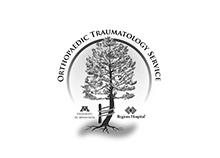Healthcare News
Distal Biceps Repair Using an All-Suture Anchor Technique
Distal biceps ruptures are common injuries that lead to significant decrease in elbow supination strength and pain. This Technical Note describes a single-incision distal biceps tendon repair using 2 knotless suture anchors. This technique is easily reproducible, is efficient, and has the unique benefits of decreasing the risk of heterotopic ossification and damage to neurovascular structure while providing similar outcomes to other described fixation techniques.
UConn Health Minute: Shoulder Replacement Surgery
Shoulder pain is a common complaint. There are many treatment options to help fix the problem but for some, the pain and lack of motion will require a shoulder replacement.
Ulnar Collateral Ligament Repair With Internal Brace Using Linked Knotless Suture Anchors
This article presents an adaptation of the internal brace ulnar collateral ligament (UCL) repair technique using knotless suture anchors, which shows promise for improved postsurgical functionality and a shortened recovery period in patients with UCL injuries.
Rotator Cuff Tears were Significantly More frequent in Recurrent Shoulder Instability Patients with Initial Dislocation After 40 Years than Those Before
The purpose of this study was to investigate and compare the pathologies and clinical outcomes of patients with traumatic anterior shoulder instability who underwent arthroscopic stabilization at 40 years or older between shoulders with initial dislocation before and after 40 years old.
Deltoid Muscle Anatomy and Function
The deltoid muscle is the main muscle of the shoulder. A triangle-shaped muscle, it helps move your upper arm and stabilizes the shoulder joint.















